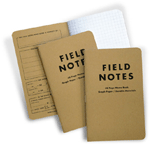by Margaret Atwood
Nan A. Talese
Buy at Powell’s »March 10, 2010
John Wray
Kathryn Stockett
Judged by
Before moving out of New York, I read nearly every page of my Tournament of Books novels on the subway. It is my favorite place to read, unequalled by any beach or sickbed I’ve yet encountered.
It is also a difficult reading experience. Readers are under constant threat of interruption: the ebb and flow of passengers, the occasional musician/acrobat troupe, your neighbor reading over your shoulder. All the while, the ticking away of the distance until your stop buzzes at the back of your brain. But between all that there are clear spaces, and there I plunged into the words, quickly transported while being transported.
Lowboy, John Wray’s third novel, is the story of a schizophrenic 16-year-old who’s escaped from an institution, gone off his meds, and is traveling the New York subways with a plan to stop global warming. (Put that way, more than a few people fit that description on the 6 train at this very moment.) His mother and a detective are in pursuit, fearing he may repeat the incident that sent him to the institution in the first place—or worse.
Wray’s writing is precise; his touch is light, and his plot is unerring. Lowboy pulls you into its heartbreaking adventure—you hope and fear so much for his characters, though Wray never overtly tells you to.
 Keep your lists of books, quotes, and sketches in Field Notes Memo Books. Check our exclusive offer for ToB readers.
Keep your lists of books, quotes, and sketches in Field Notes Memo Books. Check our exclusive offer for ToB readers.Compared to Lowboy’s cool indie flick, The Help presents an epic, CinemaScope production swelling with a tone of predictability that—to Kathryn Stockett’s credit—it mostly defies. Stockett’s debut novel tells the story of black maids working in white households in the racially charged Jackson, Miss., of the early 1960s. Trading perspectives between the maids and one of their colleague’s former charges, this book could have turned into the unauthorized sequel to To Kill a Mockingbird (let’s call it Scout Goes to College) at more than a few turns. And while The Help is occasionally manipulative, Stockett throws in enough twists to keep us more interested than offended. And to that final point, she takes a big chance with dialect—no small feat—and pulls it off convincingly enough to minimize collateral damage.
I’m reducing this matchup to style versus substance, and where Lowboy has much more of the former, The Help brings a bigger story to sink your teeth into. My sense, though, is that neither book has what it takes to go the distance in this competition. The Help has the ambition, but lacks Lowboy’s edginess. Were the two books somehow collated into a single work, the result would be more formidable: a cooler, more memorable, disarming contender. Something with teeth of its own.
For now, The Help goes to the next round.
Andrew Womack is a founding editor of TMN. Known connections to this year’s contenders: ”None.”